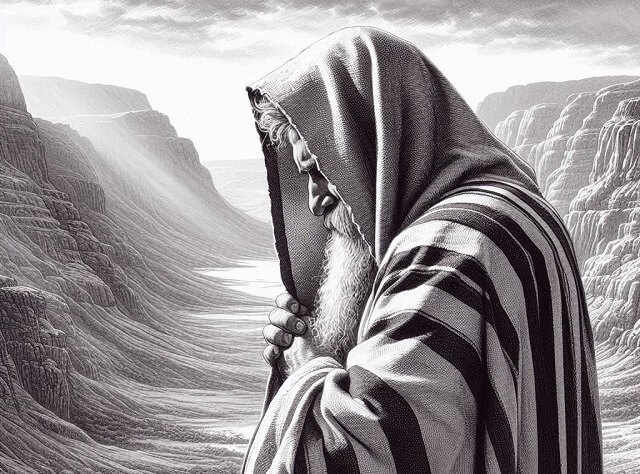
Moses’ Prayer
The Torah records Moses’ pleas for permission to enter the Land of Israel:
O God, Eternal! You have begun to show me Your greatness and power. What force is there in heaven or earth that can perform deeds and mighty acts as You can? Please, let me cross over and see the good land.... (Deut. 3:24-25)
Rabbi Simlai, in the Talmud, analyzed this prayer and drew out its structure, noting two distinct parts:
- Praise — “You have begun to show me Your greatness....”
- Petition — “Please let me cross....”
This, Rabbi Simlai explained, is a model for all prayers. One should begin with praise of God, and only afterward present one’s requests.
We need to understand this model. Is it simply a matter of etiquette,
just as one would flatter a mortal king before making a request? Or is
there a deeper significance to this protocol for prayer?
How Does Prayer Work?
Rav Kook explained that the requirement to precede prayer with God’s praise relates to the very foundations of prayer and its efficacy. Following this format prevents us from grossly misinterpreting the mechanics of prayer.
One might think that prayer is some sort of magic loophole built into the framework of Divine providence, and that by pleading our case it is possible to cause God to change His mind. The notion that we have the power to change God’s will, however, is untenable.
Rather, prayer is a wonderful gift that allows us to change and refine ourselves. Prayer does not effect a change in God; prayer effects a change in us. It is only by virtue of the soul’s moral and spiritual elevation that prayer has the power to annul harsh decrees. We cannot change the basic universal order manifested in a particular decree. But we can change ourselves. Then, as a result of our transformation, the decree is no longer relevant.
Thus it is advisable to introduce every prayer with praise of God. Such praise affirms God’s eternal nature and ensures a correct understanding of how prayer works.
Even Moses
It is striking that Rabbi Simlai’s insight was gleaned from examining a prayer of Moses. One might consider himself above making such a mistake regarding the nature of prayer. Yet we find that even Moses, despite his unparalleled grasp of spiritual matters, took care to introduce his request with praise of God. Certainly we should follow Moses’ lead, thereby ensuring that we correctly recognize the true nature of prayer.
(Sapphire from the Land of Israel. Adapted from Ein Eyah vol. I, p. 147)